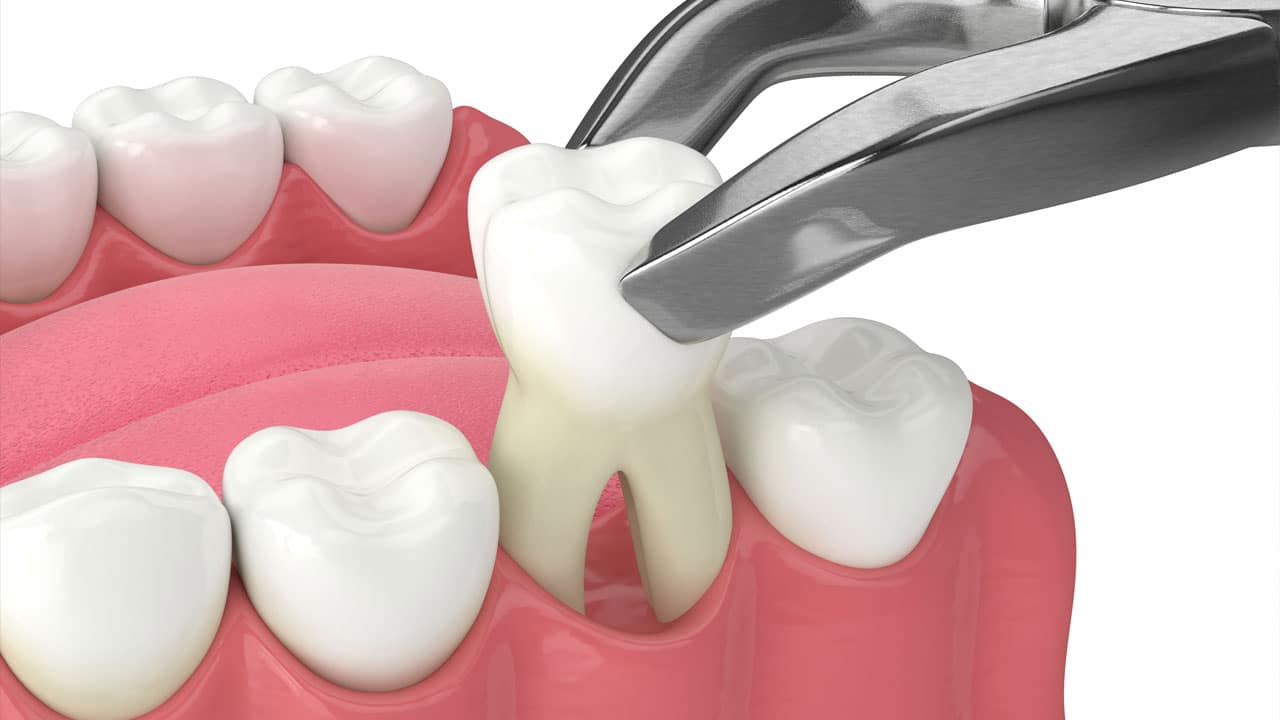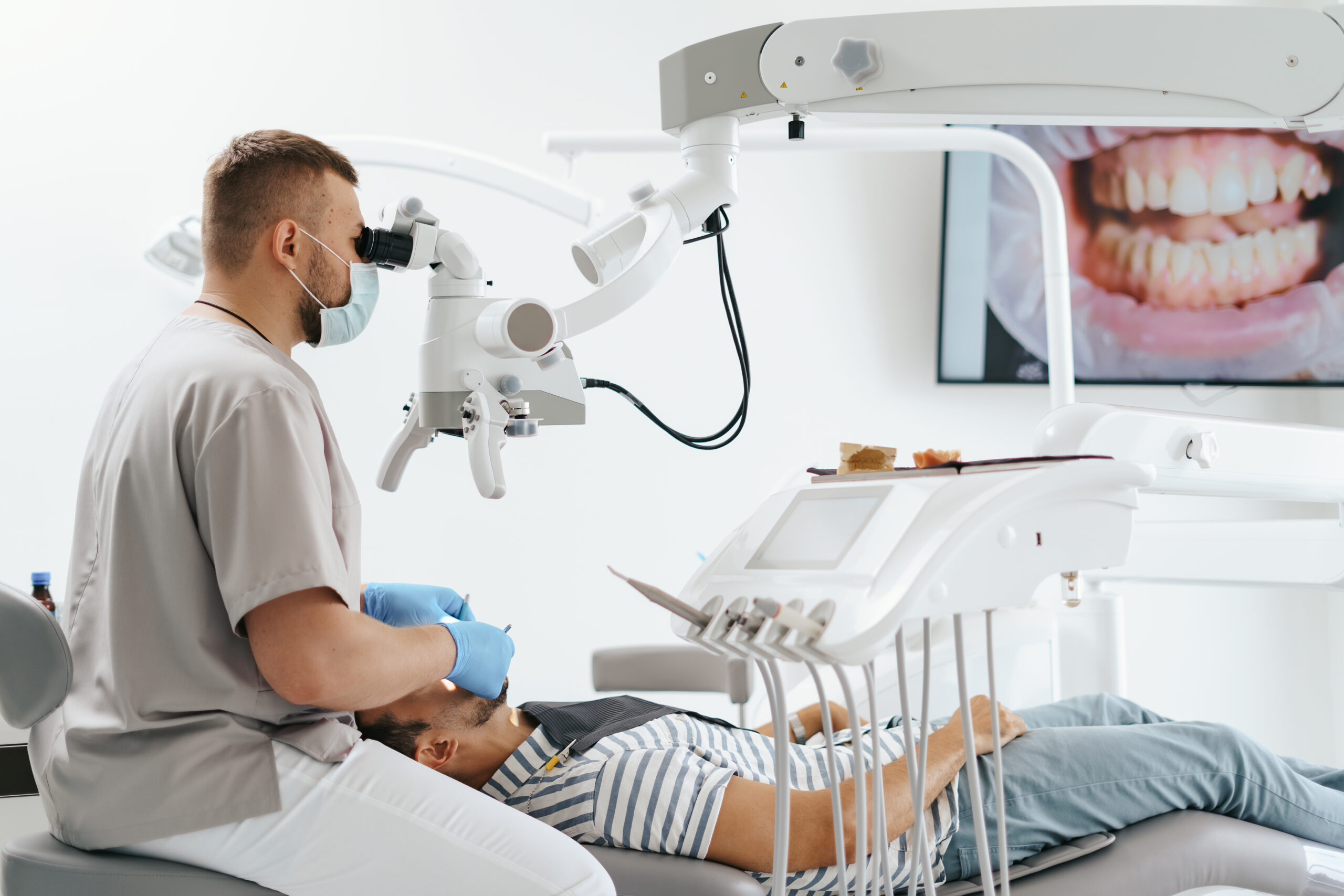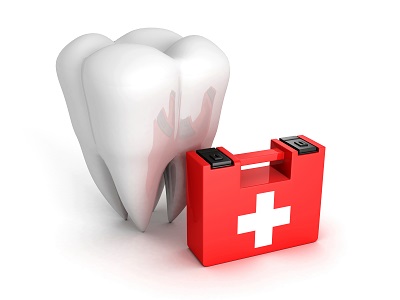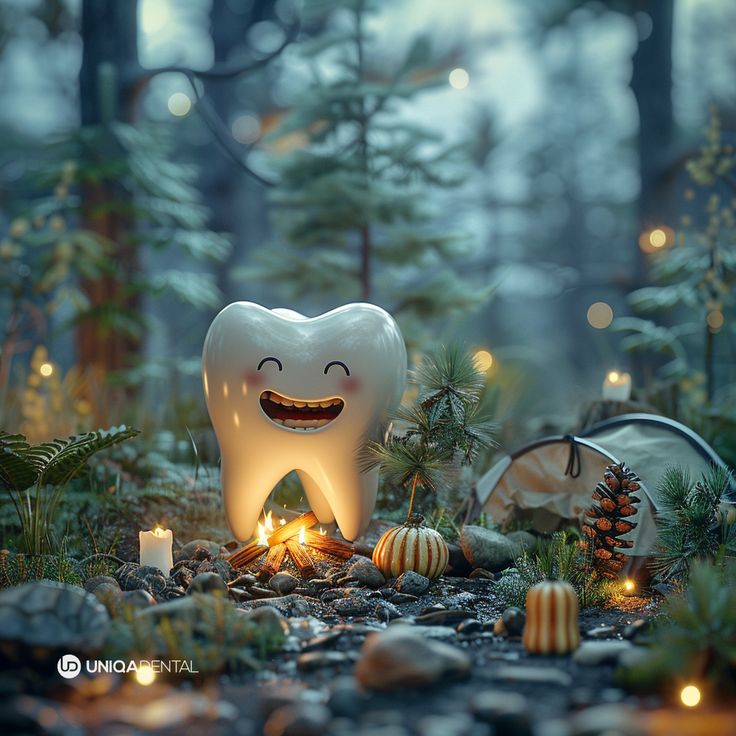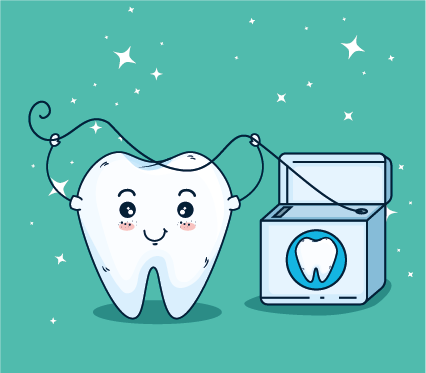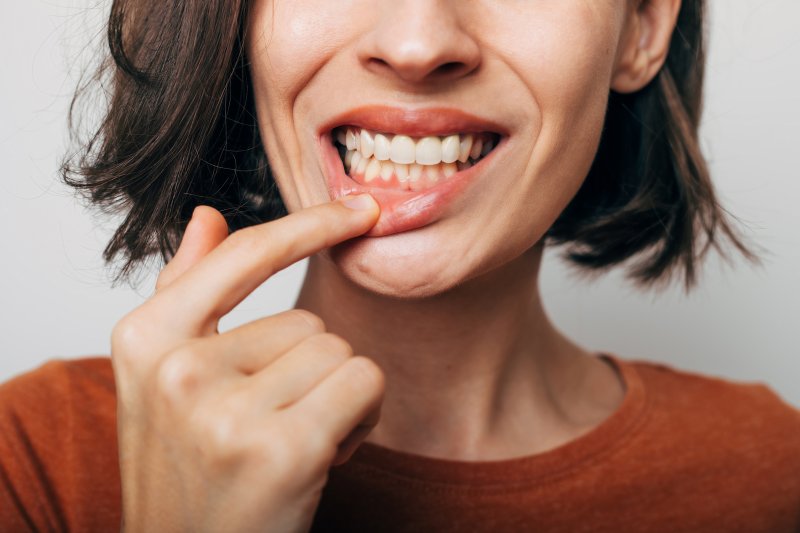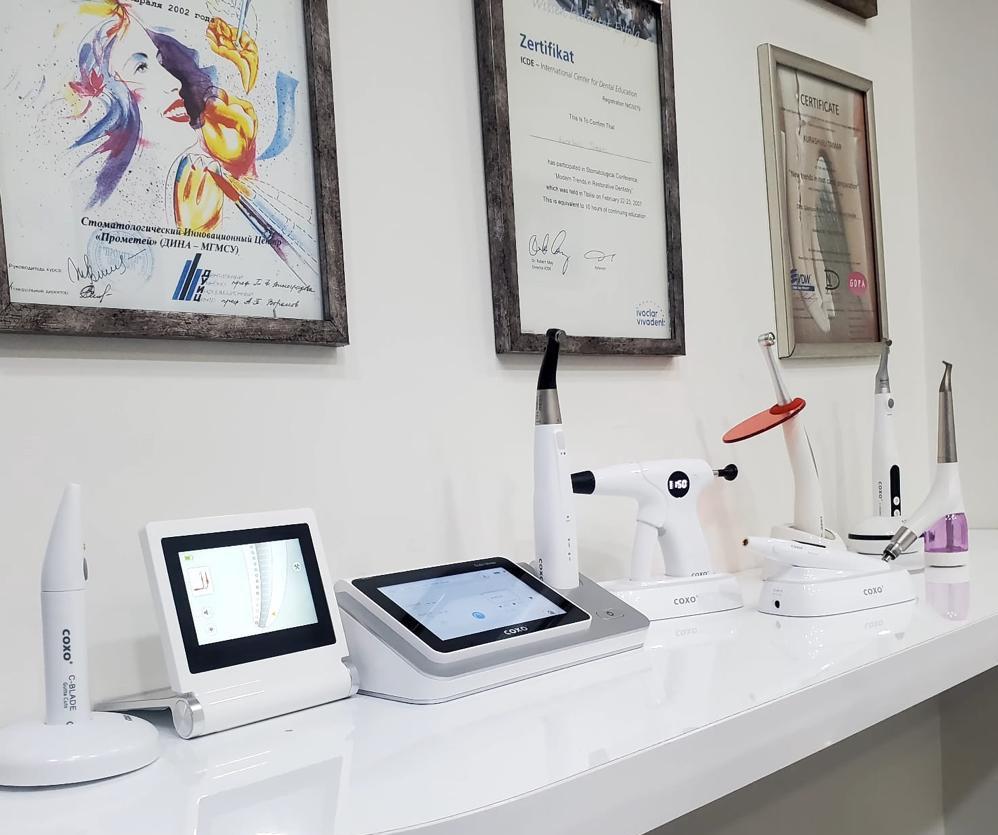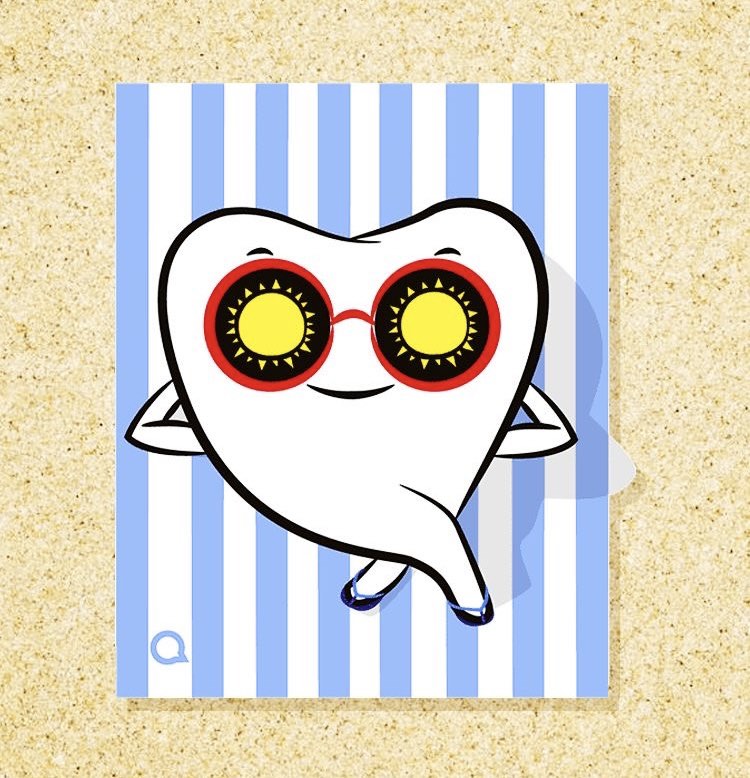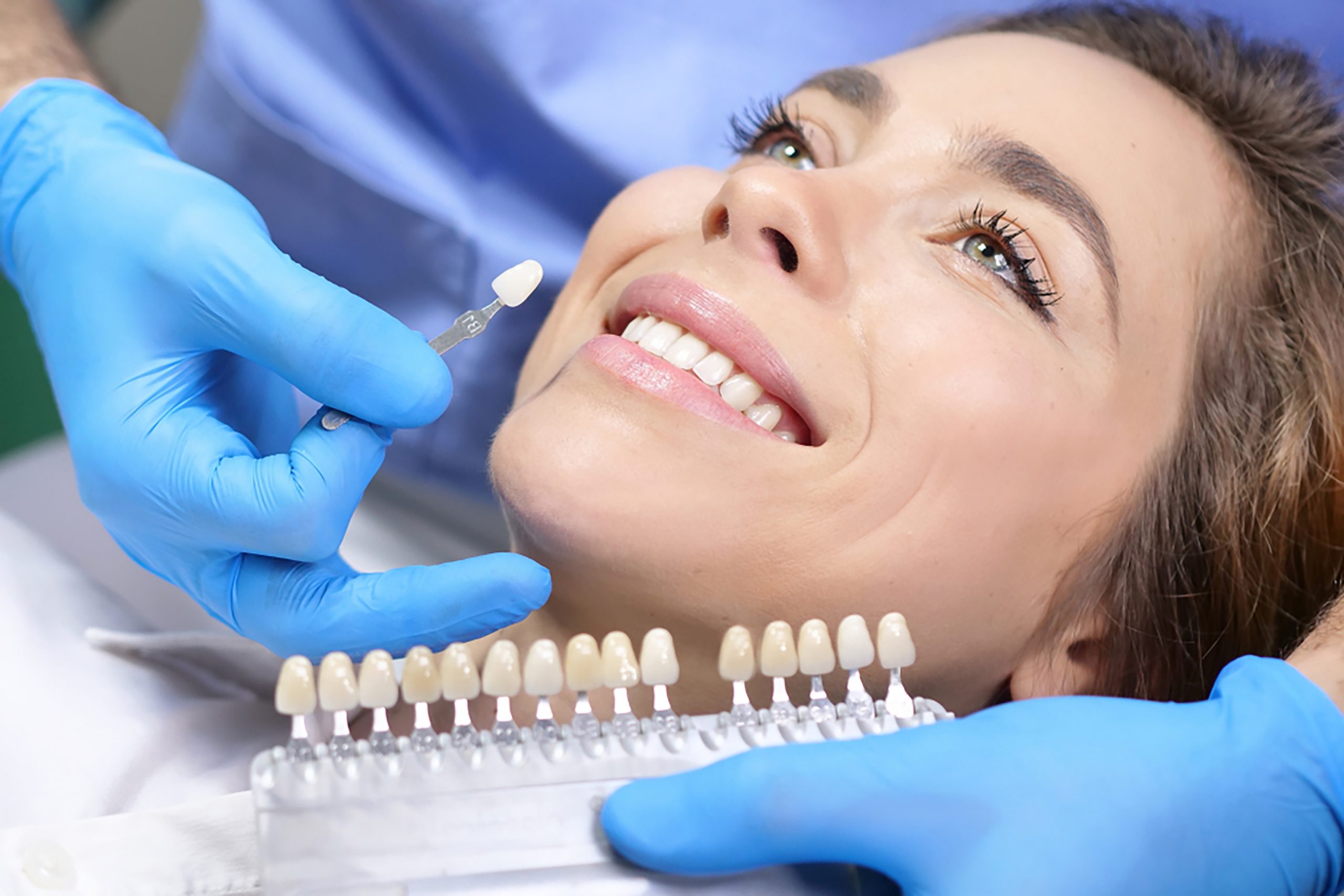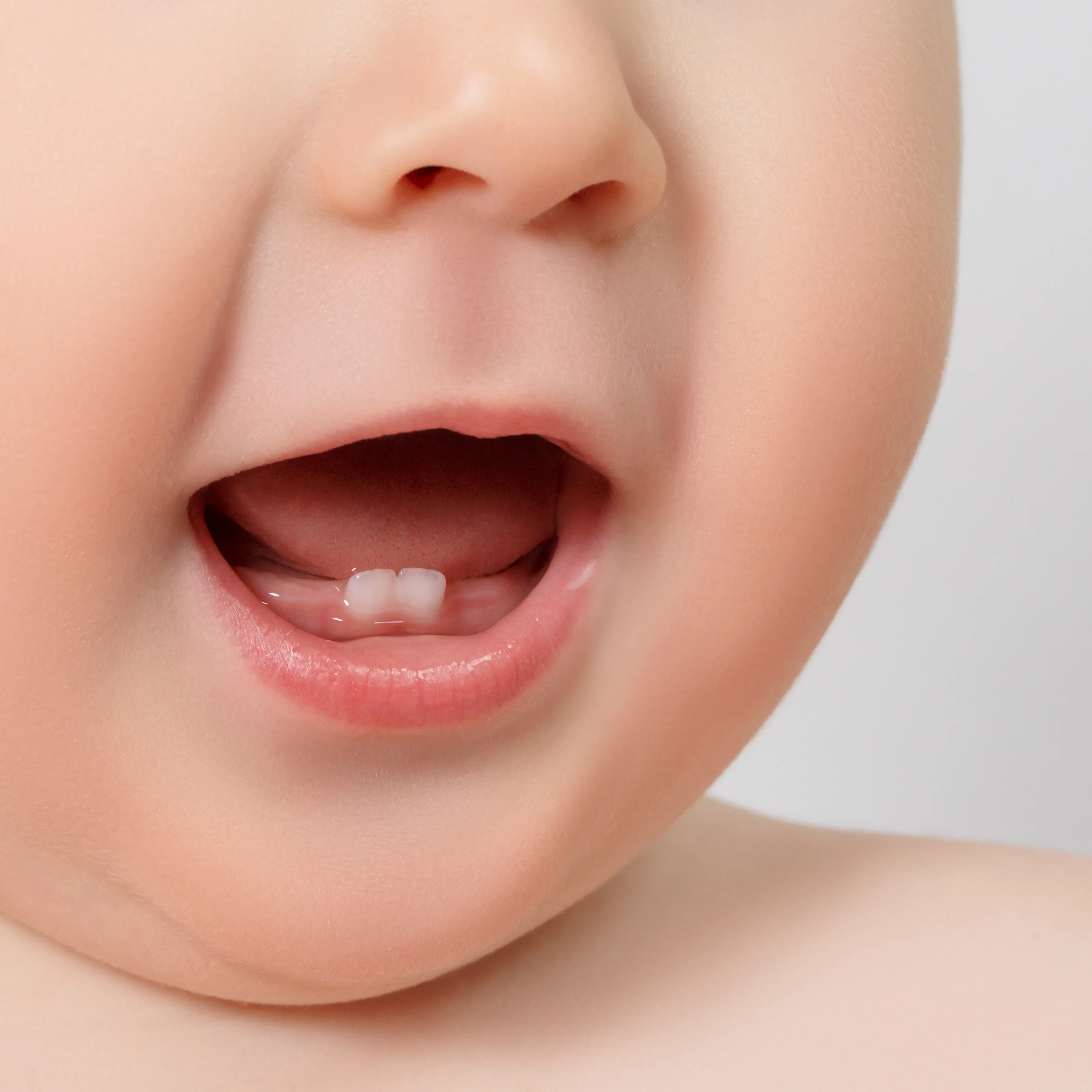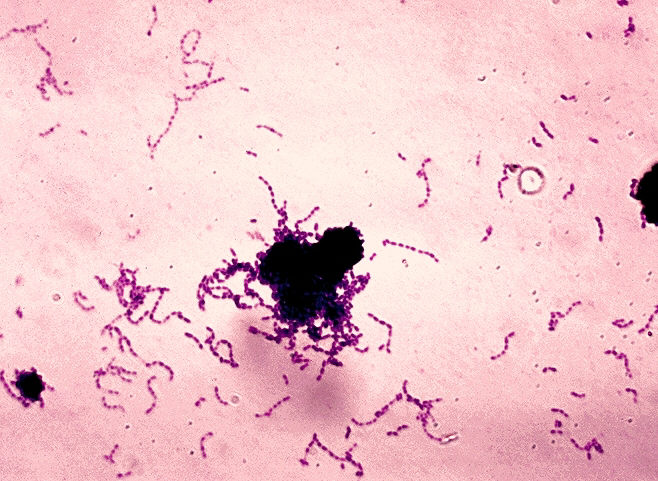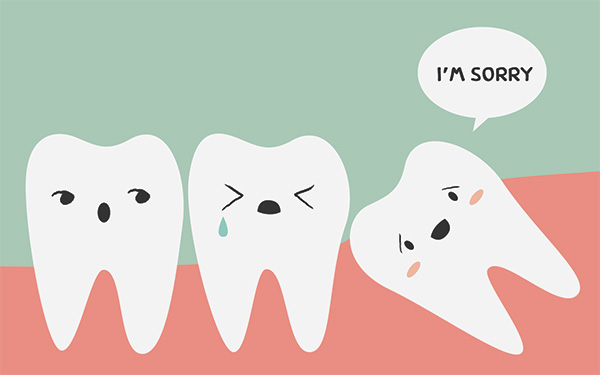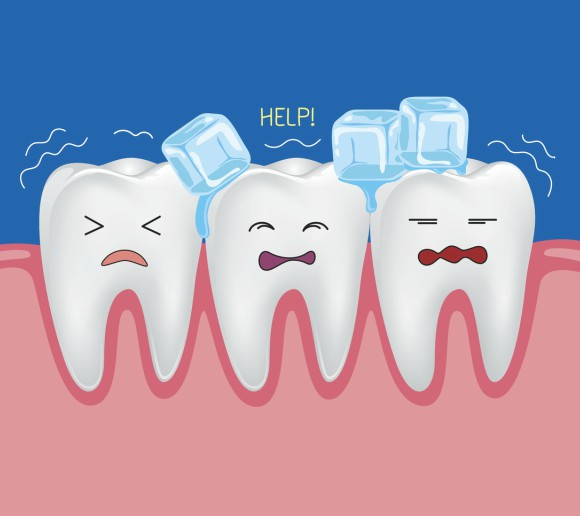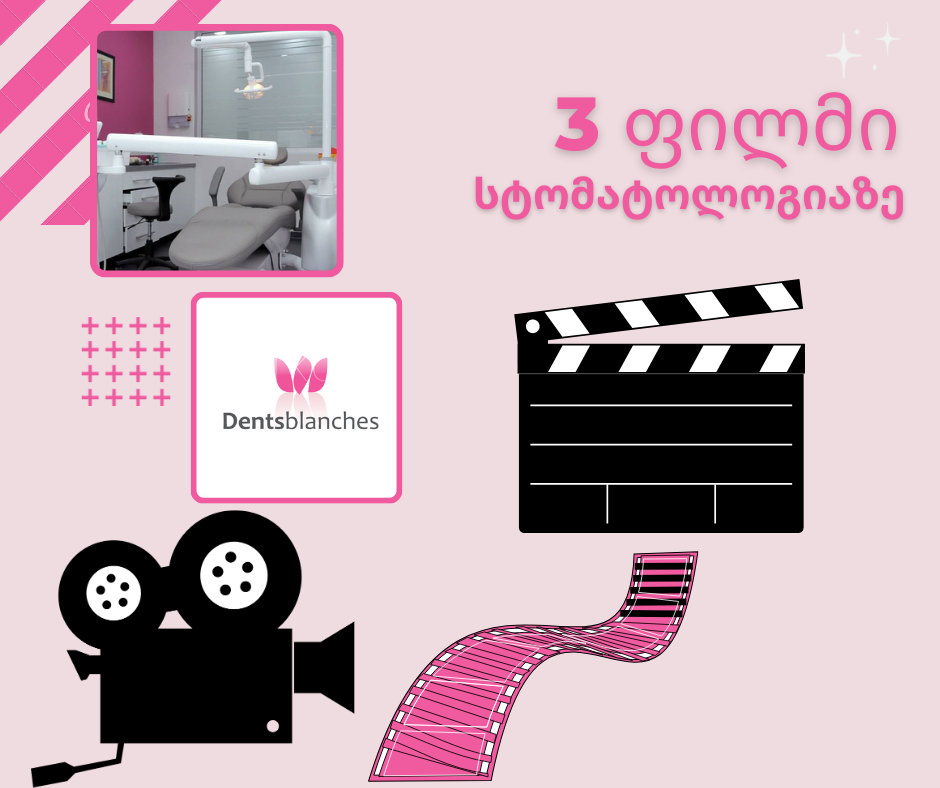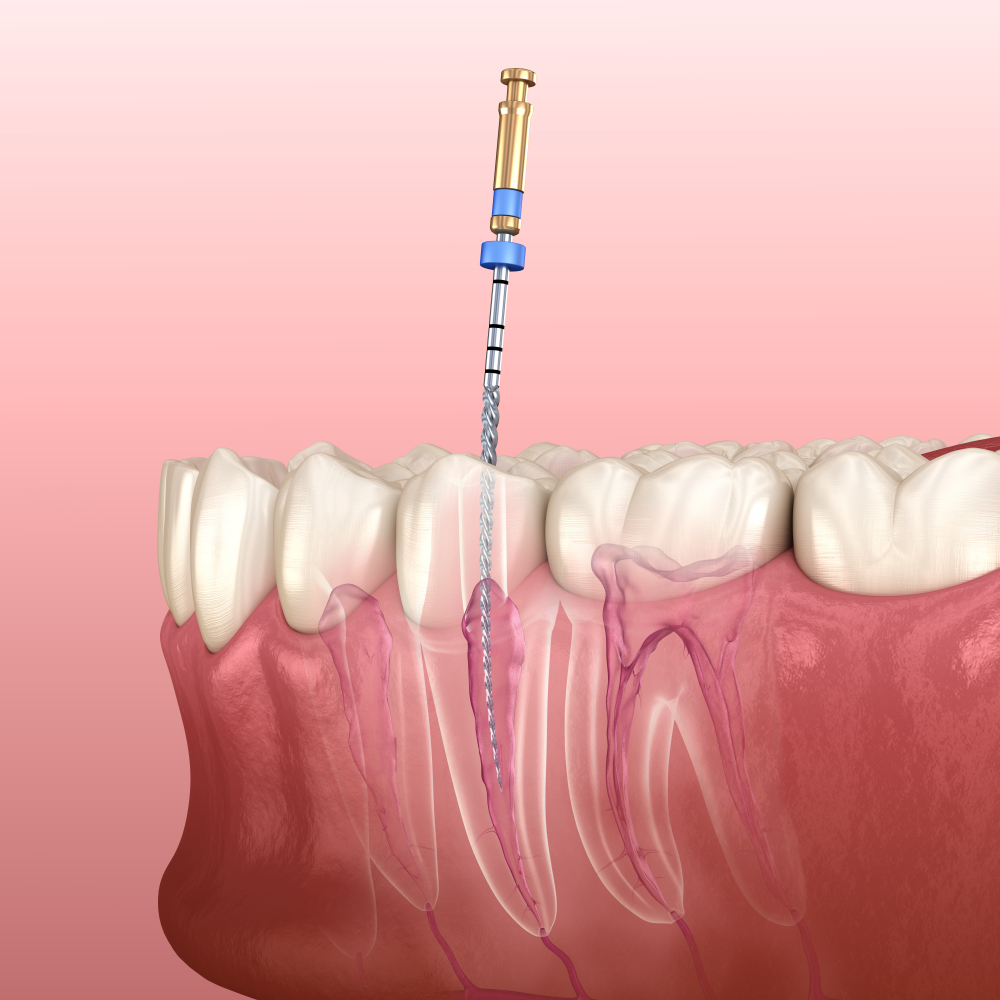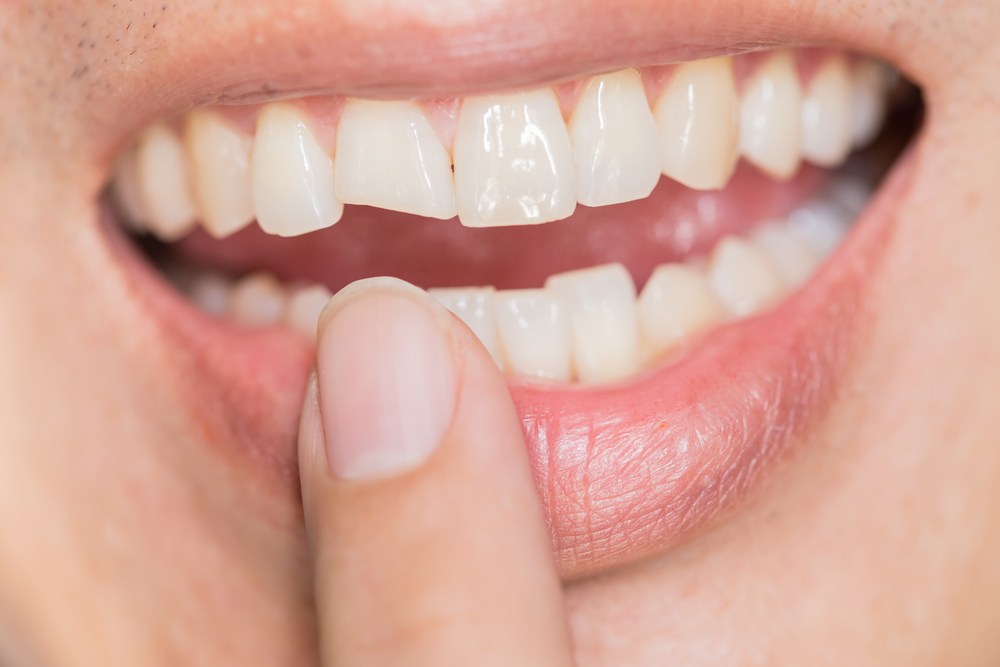jj
Modern Dentistry and Natural Facial Aesthetics
25.03.2025Modern Dentistry: More Than Just Oral Health
Modern dentistry is much more than just maintaining dental health—it creates an aesthetically perfect and individually tailored smile that harmonizes with facial shapes and features. Smile design involves balancing the teeth, gums, lips, and overall facial proportions. An ideal smile is not just about bright white teeth; it should be natural, individually suited, and in perfect harmony with the facial structure.
What Makes a Perfect Smile?
-
Tooth Proportions and Shape – The size and alignment of the teeth, when blended with facial features, play a crucial role in creating a flawless smile.
-
Gum Aesthetics – The contour, size, shape, and even color of the gums significantly impact the visual appeal of a smile.
-
Tooth Color and Texture – A natural brightness that complements skin tone and eye color enhances the overall aesthetics of the face.
-
Symmetry and Balance – A smile should align with facial symmetry and highlight the individual's unique beauty.
Advanced Methods in Smile Design
Today, dentistry offers numerous innovative techniques that not only enhance smile aesthetics but also completely transform a patient’s appearance:
-
3D Digital Design – With digital modeling technology, patients can visualize the expected outcome in advance, making decision-making easier.
-
Ceramic Veneers and Lumineers – Thin yet durable coverings that help create perfectly shaped, colored, and textured teeth.
-
Laser Gum Contouring – A painless procedure that aligns the smile line for better facial harmony.
-
Invisalign and Orthodontic Correction – Clear aligners allow teeth to be straightened while maintaining both aesthetics and comfort.
-
Zoom Teeth Whitening – A safe and effective method that gives teeth a natural whiteness without damage.
The Power of a Beautiful Smile
Aesthetic dentistry is not just about looks—it is deeply connected to self-confidence and comfort. The right dental procedures not only improve a smile’s appearance but also transform a person’s entire expression, reflecting their inner energy and boosting self-assurance. If you believe your smile could be even more radiant, consult with us! Our modern technology and personalized approach will help you achieve results that enhance your natural beauty and uniqueness.
First Aid: Facial and Jaw Fractures, and Dental Trauma
12.12.2024Facial and jawbone fractures, as well as dental trauma, are serious injuries that require immediate attention. Proper first aid not only alleviates pain but can also prevent complications.
What Should Be Done First?
-
Assess the Injury
Carefully examine the injured area. If there is bleeding, stopping it should be your top priority. -
Control Bleeding
Use a clean gauze or cloth to apply gentle pressure to the bleeding area. Avoid excessive force on the injured site. -
Handle Dislodged Teeth with Care
If a tooth has been completely knocked out, store it in a clean cloth or submerge it in milk to preserve its viability for reimplantation. -
Stabilize the Jaw
If a jaw fracture is suspected, avoid attempting to realign it. Use a bandage or cloth to stabilize the jaw in place until professional care is available. -
Relieve Pain and Swelling
Apply a cold compress to the injured area to reduce swelling and alleviate pain. Take pain relievers only as directed by a medical professional.
What Should You Avoid?
- Do not attempt to "fix" or reposition broken bones. This may worsen the injury.
- Do not underestimate minor injuries, as they may conceal more serious damage.
When to See a Doctor?
Any fracture or significant dental trauma requires prompt medical attention. Visiting a dental clinic ensures proper diagnosis and treatment.
Conclusion
Proper first aid for facial and jaw injuries can be lifesaving. Quick action and timely consultation with a specialist minimize the risk of complications.
Do you have more questions? Reach out to our clinic through our social media channels or call us—we’re always ready to help!
The Surprising Connection Between Oral Health and Your Mind
07.11.2024"The Surprising Connection Between Oral Health and Your Mind"
When we think of oral health, we usually imagine brushing, flossing, and dental check-ups—but what if the state of your mouth has a profound link to your mental and emotional well-being? Recent research uncovers connections between oral health and the mind, revealing that oral bacteria and gum inflammation may be silently impacting our stress levels, memory, and even mood.
1. Oral Health and Mental Clarity: The Microbiome Effect
The mouth harbors a unique community of bacteria, known as the oral microbiome, which plays a key role in everything from digestion to immune function. When the oral microbiome is out of balance (often due to poor dental hygiene or a diet high in sugar), harmful bacteria can flourish. These bacteria can migrate into the bloodstream, potentially reaching the brain and triggering an inflammatory response. This inflammation has been linked to cognitive disorders, including memory loss and even conditions like Alzheimer's disease.
2. The Mouth-Body Connection: Inflammation and Mood
Gum disease, or periodontal disease, is an inflammatory condition that can lead to tooth loss, but its impact doesn’t stop there. Studies show that chronic gum inflammation is correlated with higher levels of systemic inflammation, which has been associated with depression, anxiety, and fatigue. Essentially, untreated gum disease may lead to a "loop" of inflammation that affects not only your body but also your mind.
3. Stress and Oral Health: A Vicious Cycle
Stress is a well-known factor in oral health. People under stress tend to grind their teeth, neglect their dental care, and may suffer from dry mouth, which creates a breeding ground for harmful bacteria. But here’s the twist: poor oral health can also increase stress. Researchers have found that chronic inflammation and the presence of harmful bacteria may lead to changes in cortisol levels, the body’s primary stress hormone, making stress even harder to manage.
4. Cognitive Benefits of a Healthy Smile
Taking steps to care for your oral health may improve your overall well-being. Studies have shown that individuals with good oral hygiene and minimal gum inflammation report better focus, memory, and even productivity. This may be due to a reduction in inflammatory markers, allowing for better communication between the gut, mouth, and brain.
Final Thoughts
Oral health is a key component of overall well-being, but it’s more than just appearances or preventing cavities. Maintaining a balanced oral microbiome and reducing inflammation in the gums may offer unexpected benefits for mental clarity, stress resilience, and even long-term cognitive health. So, as you reach for your toothbrush, remember—it’s not just about a healthy smile; it’s about a healthier mind, too.
The Connection Between Oral Health and Overall Health
16.09.2024**The Connection Between Oral Health and Overall Health**
Oral health is more than just having a bright smile or avoiding cavities—it’s closely linked to overall well-being. Research shows that the health of our teeth and gums can significantly impact other parts of the body. Poor oral hygiene doesn’t only cause issues like tooth decay or gum disease, but it can also lead to more serious health conditions.
Gum disease, for instance, has been linked to heart disease. Bacteria from inflamed gums can enter the bloodstream, contributing to the formation of arterial plaque, increasing the risk of heart attack or stroke. Diabetes and oral health are also connected, as people with diabetes are more susceptible to infections, including gum disease, and managing oral health can help control blood sugar levels.
Oral health can also influence respiratory conditions. Inhaled bacteria from infected teeth and gums can cause lung infections, exacerbating conditions like pneumonia and bronchitis. Additionally, there’s evidence suggesting links between poor oral health and pregnancy complications, including low birth weight and premature births.
Maintaining good oral hygiene—brushing, flossing, regular dental check-ups—goes beyond preserving teeth. It is an essential aspect of safeguarding overall health.
Make an appointment to make sure your oral health is in top shape.
positive habits to maintain exceptional dental health
21.08.2024Maintaining a bright, healthy smile is more than just an aesthetic pursuit; it’s an essential aspect of overall health. Developing positive dental habits can significantly impact your oral health, preventing issues like cavities, gum disease, and tooth decay. Here’s a guide to the habits that will help you maintain a radiant smile and robust dental health.
### 1. **Brushing Twice a Day**
The foundation of good oral hygiene starts with brushing your teeth twice a day—morning and night. Use fluoride toothpaste and a soft-bristled toothbrush to gently clean all surfaces of your teeth. Brushing removes food particles and plaque, a sticky film of bacteria that can lead to cavities and gum disease if not removed regularly.
**Pro Tip:** Don’t forget to brush your tongue! Bacteria can accumulate there, leading to bad breath and other oral health issues.
### 2. **Flossing Daily**
While brushing is crucial, it can’t reach the spaces between your teeth. That’s where flossing comes in. Daily flossing removes plaque and food particles from between your teeth and under the gumline, areas that a toothbrush often misses. This habit helps prevent cavities and gum disease, contributing to a healthier smile.
**Pro Tip:** If traditional flossing is difficult, consider using floss picks or a water flosser for convenience.
### 3. **Eating a Balanced Diet**
What you eat has a direct impact on your dental health. A diet rich in vitamins and minerals, especially calcium and vitamin D, supports strong teeth and gums. Avoid excessive sugar, as it feeds the bacteria that cause plaque and tooth decay. Instead, opt for foods like fruits, vegetables, lean proteins, and dairy products that promote oral health.
**Pro Tip:** Crunchy fruits and vegetables, like apples and carrots, help clean your teeth naturally by stimulating saliva production, which neutralizes acids and washes away food particles.
### 4. **Drinking Plenty of Water**
Water is your mouth’s best friend. Drinking water throughout the day helps wash away food particles and bacteria, reducing the risk of tooth decay. Fluoridated water, in particular, can help strengthen your enamel, making your teeth more resistant to cavities.
**Pro Tip:** After consuming acidic or sugary foods and drinks, rinse your mouth with water to help protect your enamel.
### 5. **Limiting Sugary and Acidic Foods**
Sugar is one of the leading causes of tooth decay. When sugar mixes with the bacteria in your mouth, it creates acid that attacks your tooth enamel. Similarly, acidic foods and drinks, like citrus fruits and soda, can erode enamel over time. Limiting your intake of these foods can significantly reduce your risk of cavities and enamel erosion.
**Pro Tip:** If you do indulge in sugary or acidic treats, try to have them during mealtime. The increased saliva production during meals helps neutralize acids.
### 6. **Regular Dental Check-ups**
Visiting your dentist regularly, typically every six months, is essential for maintaining oral health. Professional cleanings remove plaque and tartar that your daily brushing and flossing might miss. Your dentist can also identify early signs of potential problems, such as cavities or gum disease, and provide appropriate treatment before they become serious.
**Pro Tip:** Keep a consistent schedule for your dental visits. Regular check-ups are not only about cleaning but also about early detection and prevention.
### 7. **Avoiding Tobacco Products**
Tobacco use is one of the worst habits for your oral health. Smoking or using other tobacco products stains your teeth, causes bad breath, and significantly increases your risk of gum disease, tooth loss, and oral cancer. Quitting tobacco is one of the best things you can do for your smile and overall health.
**Pro Tip:** If you’re trying to quit tobacco, seek support from your dentist, who can provide resources and advice to help you kick the habit for good.
### 8. **Using Mouthwash**
Incorporating an antimicrobial mouthwash into your daily routine can help reduce plaque, prevent gingivitis, and freshen your breath. Mouthwash reaches areas that brushing and flossing might miss, providing an extra layer of protection against cavities and gum disease.
**Pro Tip:** Choose an alcohol-free mouthwash if you have sensitive gums or dry mouth, as alcohol can sometimes cause irritation.
### 9. **Chewing Sugar-Free Gum**
Chewing sugar-free gum after meals stimulates saliva production, which helps wash away food particles and neutralize acids produced by bacteria in your mouth. This habit can be especially beneficial if you’re unable to brush after eating.
**Pro Tip:** Look for gum that contains xylitol, a natural sweetener that has been shown to reduce the risk of cavities.
### 10. **Protecting Your Teeth**
If you play contact sports or grind your teeth at night, wearing a mouthguard can protect your teeth from injury and wear. Mouthguards cushion the impact, helping to prevent broken teeth and other oral injuries.
**Pro Tip:** Consult your dentist about custom-made mouthguards, which offer better fit and protection than over-the-counter options.
### Conclusion
Maintaining a bright, healthy smile requires commitment to good dental habits. By brushing and flossing daily, eating a balanced diet, staying hydrated, and visiting your dentist regularly, you can keep your teeth and gums in top condition. These simple yet effective practices not only enhance your smile but also contribute to your overall well-being. So, start incorporating these positive habits into your routine today, and enjoy the benefits of a healthier, brighter smile!
Bleeding gums: when to visit a dentist
09.07.2024With the warmth of summer and plenty of free time comes outdoor activities and plenty of opportunities for fun in the sun. However, the heat presents new challenges to oral health. One of the problems that can become more urgent at this time is bleeding gums. It is interesting when to ignore the problem/treat at home and when to consult a dentist?
What causes bleeding gums?
Bleeding gums can be a sign of a number of problems, most commonly gum disease such as gingivitis or periodontitis.
Potential causes of bleeding gums include:
- Improper oral hygiene
- Using a coarse toothbrush
- Hormonal changes
- Deficiency of vitamins
- Medicines
- smoke
It is worth noting that in the summer several factors can contribute to the irritation of the gums and cause bleeding:
1. Dehydration: Hot weather can cause dehydration, which reduces saliva production. Saliva is crucial for removing food particles and bacteria, so less saliva can lead to plaque build-up and gum irritation.
2. Changed eating habits: Summer often means barbecues, picnics, and consuming large amounts of soft (sugary) or acidic foods and drinks. This can increase the risk of gum inflammation and bleeding.
3. Increased physical activity: More outdoor activity increases the risk of oral injury or sudden trauma, which can also lead to bleeding gums.
4. Allergies and sinus problems: Summer allergens can cause sinus congestion, which in turn causes mouth breathing. Mouth breathing can dry out and irritate the gums.
While sometimes mild gum bleeding can be easily treated at home, persistent or heavy bleeding should not be ignored.
Here are some signs that it's time to make an appointment with the dentist:
- Bleeding that lasts more than a week
- Swollen gums
- Gums that are easily irritated and start to bleed spontaneously without brushing/flossing.
- Constant bad smell or bad taste in the mouth
- Painful chewing
In conclusion, good oral hygiene, regular visits and plenty of water will help you enjoy the season healthy and carefree. If you notice persistent bleeding or other signs of gum disease, do not hesitate to contact your dentist for professional advice.
To make an appointment with a periodontist, contact us.
The Importance of Endodontics in Saving Teeth
26.06.2024Endodontics, often referred to as root canal therapy, is a crucial branch of dentistry focused on treating the inside of the tooth. This field plays a vital role in preserving natural teeth, ensuring oral health, and maintaining a patient's overall well-being. Understanding the significance of endodontics helps patients appreciate the benefits of this essential dental treatment.
What is Endodontics?
Endodontics involves treating the pulp (the innermost part of the tooth) and surrounding tissues. The pulp contains nerves, blood vessels, and connective tissue, which can become infected or inflamed due to various factors such as deep decay, repeated dental procedures, or trauma to the tooth. Endodontists, specialized dentists in this field, perform procedures to remove the infected or damaged pulp, clean and disinfect the inside of the tooth, and fill and seal it to prevent further infection.
Why is Endodontics Important?
1. Saving Natural Teeth
One of the primary goals of endodontics is to save natural teeth. Preserving your natural teeth is always preferable to extracting and replacing them with artificial ones. Natural teeth maintain the integrity of the jawbone, prevent neighboring teeth from shifting, and provide the best functionality for chewing and speaking.
2. Preventing Infection Spread
An untreated infection in the pulp can spread to surrounding tissues, leading to abscesses, severe pain, and swelling. If left unchecked, the infection can affect other parts of the body, posing significant health risks. Endodontic treatment effectively eliminates the infection, preventing its spread and safeguarding overall health.
3. Relieving Pain
Infected or inflamed pulp can cause severe tooth pain and sensitivity, often making it difficult to eat or drink. Endodontic treatment removes the source of the pain, providing much-needed relief and restoring normal function.
4. Maintaining Oral Health
A healthy mouth is essential for overall well-being. By treating infections and preserving natural teeth, endodontics contributes significantly to maintaining good oral health. A healthy mouth can prevent other systemic issues, such as heart disease and diabetes, which are linked to poor oral health.
The Endodontic Procedure
Understanding the procedure can help alleviate any fears or misconceptions about root canal therapy. The process typically involves:
-
Diagnosis and Preparation: The endodontist examines the tooth, takes X-rays, and discusses the procedure with the patient. Local anesthesia is administered to ensure comfort during the treatment.
-
Accessing the Pulp: The endodontist creates an opening in the crown of the tooth to access the pulp chamber and root canals.
-
Cleaning and Shaping: The infected or damaged pulp is removed, and the root canals are cleaned, shaped, and disinfected.
-
Filling and Sealing: The cleaned canals are filled with a biocompatible material called gutta-percha. The tooth is then sealed to prevent reinfection.
-
Restoration: After the root canal treatment, the tooth may require a crown or filling to restore its strength and functionality.
Conclusion
Endodontics is a vital aspect of dental care, playing a crucial role in saving natural teeth and maintaining oral health. By preventing infections, relieving pain, and preserving the natural structure of the mouth, endodontic treatments contribute significantly to a patient's overall health and quality of life. Understanding and appreciating the importance of endodontics can encourage patients to seek timely treatment and ensure a healthier, pain-free smile.
Tips for Maintaining Oral Health During Summer
04.06.2024Summer is a time for fun in the sun, vacations, and outdoor activities, but it's also essential to pay attention to your oral health. The warmer months can present unique challenges for maintaining a healthy mouth. Here are some tips to ensure your smile stays bright and healthy throughout the summer:
1.. *Stay Hydrated:* Dehydration can lead to dry mouth, which reduces saliva production. Saliva is crucial for washing away food particles and neutralizing acids in the mouth. Drink plenty of water throughout the day to keep your mouth moist and reduce the risk of tooth decay and gum disease.
2. *Choose Healthy Snacks:* Summer often means more snacking on the go. Opt for healthy options like fresh fruits and vegetables, which are not only good for your body but also help clean your teeth and gums. Avoid sugary snacks and drinks that can lead to cavities.
3. *Protect Your Lips:* Your lips are susceptible to sunburn, which can increase the risk of oral cancer. Use a lip balm with SPF to protect them from harmful UV rays.
4. *Limit Sugary Beverages:* While it’s tempting to cool off with sodas, sports drinks, and sweetened iced teas, these beverages can erode enamel and cause cavities. Instead, choose water or unsweetened iced tea.
5. *Chew Sugar-Free Gum:* Chewing sugar-free gum can help stimulate saliva flow, which is beneficial for oral health. It’s a good alternative when you can’t brush your teeth after meals.
6. *Maintain Your Oral Hygiene Routine:* With the change in routine during summer vacations and outings, it’s easy to neglect your daily oral hygiene. Make sure to brush your teeth twice a day for two minutes and floss daily.
7. *Schedule a Dental Check-Up:* Summer is a great time to schedule a dental check-up, especially before any trips. A professional cleaning can remove plaque and tartar buildup and ensure that any potential issues are addressed before they become problems.
8. *Be Cautious with Whitening Products:* If you’re planning to whiten your teeth for summer, be mindful of over-the-counter products. Overuse can cause tooth sensitivity and damage the enamel. Consult your dentist for safe whitening options. By following these tips, you can enjoy all the pleasures of summer while keeping your oral health in check. A little extra care goes a long way in maintaining a healthy and beautiful smile.
5 facts about teeth whitening
17.05.2024At "dentsblanches", our patients often ask us about the teeth whitening procedure. Indeed, according to a survey by the American Academy of Cosmetic Dentistry, "When respondents were asked, 'What is the first procedure you would like to have to improve your smile?' the most common answer was, 'Whitening of course, whiter teeth.'
Indeed, a white smile makes an instant impression on the people you meet. If you are considering a teeth whitening procedure, here are 5 facts you should know.
1. Why do teeth change color?
There are several different reasons why teeth become discolored. The most common cause is the consumption of certain foods and beverages. Drinking red wine, coffee, or tea can discolor teeth. These drinks have pigments that deposit on tooth enamel. Tar and nicotine found in tobacco products produce brown and yellow stains. Time also plays a factor. As we age, the outer enamel of our teeth thins and the yellowish dentin underneath is more exposed. Certain medications can also cause your teeth to whiten, including some antihistamines, antibiotics, high blood pressure medications, or chemotherapy.
2. How does teeth whitening work?
Teeth whitening is a bleaching process that is achieved with hydrogen peroxide or carbamide peroxide. As a result, the light transmission of the enamel-dentin boundary saturated with oxygen free radicals increases and we get whiter teeth.
3. Teeth whitening options
Professional "in-office" zoom teeth whitening at a trusted dentist is the fastest and safest way to whiten your teeth. It usually takes less than 90 minutes and can whiten up to 10 tones. Another quite common method is to whiten teeth at home with a cap. The patient applies whitening gel to individual caps made in the clinic and can wear it everywhere: at work, while driving, while sleeping and in any situation. It is necessary to follow the rules of use! The whitening gel should be placed on the teeth only for the specified time.
The third and most affordable option is teeth whitening toothpastes and wipes. They contain mild abrasives that can remove surface stains. These products differ from whiteners in that they do not change the color of the teeth. They only help to remove stains on the surface of the teeth. In such cases, it takes longer to achieve the whitening effect and will only whiten the teeth by one or two tones. The results also don't last as long as other teeth whitening methods discussed.
4. Teeth whitening does not work the same on all teeth
As a rule, yellow teeth whiten well, brown colors much less, and gray or purple tones may not respond to the procedure at all. Also, if you have crowns, caps, or veneers, they won't react to whitening.
5. Possible side effects of teeth whitening
The most common side effect of using whitening products is tooth sensitivity. This happens when the whitening agent penetrates the enamel and irritates the tooth nerve. It is usually temporary. Professional teeth whitening does not cause any harm to the teeth: neither to the enamel, nor to the dentine, nor to the roots. In the process of chemical whitening, only the carbon lattices on the enamel-dentine border are replaced by oxygen radicals.
Now that you have the necessary information about teeth whitening, I will tell you that you can perform in-office whitening with us using the American high-quality IBRITE LED WHITENING LIGHT device and WHITER IMAGE gel.
Contact us to register
Energy Drinks and Your Teeth
03.04.2024In today’s fast-paced world, energy drinks have become a popular choice for boosting alertness and productivity. However, while they may provide a temporary surge of energy, it’s important to be aware of their potential impact on your oral health. Whether you’re a regular consumer or simply indulge occasionally, understanding the risks is crucial.
Here are some of the top things to consider.
Enamel Erosion: Research has shown that energy drinks can contribute to enamel erosion, which leads to weakened and sensitive teeth. These drinks may increase both surface roughness and depth of enamel lesions.
High Acid Content: Energy drinks, even sugar-free options, often have high levels of acidity. The acidic nature of these drinks can erode tooth enamel over time, leaving your teeth vulnerable to decay and sensitivity. Regular consumption can lead to irreversible damage and compromise your oral health.
Sugar and Dental Decay: While sugar-free energy drinks may seem like a healthier alternative, they can still be harmful to your teeth. Many contain artificial sweeteners, which can be equally damaging. Additionally, some energy drinks have high sugar content, contributing to dental decay and cavities if consumed frequently.
Stain and Discoloration: Similar to coffee, tea, and soda, energy drinks can stain and discol[o]r your teeth. The dark pigments found in these drinks gradually penetrate the enamel, leading to unsightly stains that may require professional teeth whitening to restore your smile’s brilliance.
Opt for Healthier Alternatives
To protect your teeth and overall well-being, consider healthier alternatives to energi[z]e your day. Green tea, for example, provides a moderate caffeine boost while offering numerous health benefits. Water is always an excellent choice for staying hydrated and maintaining optimal oral health.
While energy drinks may seem like a quick fix for tiredness, it’s important to be mindful of their potential impact on your teeth. Are you a regular consumer? If it’s been a while since your last checkup with us, consider booking an appointment to ensure your oral health remains in tip-top shape. We look forward to seeing you soon!
Tiny Teeth: A Guide to Infant Teething Adventures
26.03.2024Title: "Tiny Teeth: A Guide to Infant Teething Adventures"
Welcome to the world of tiny teeth! As a parent, there are few milestones as adorable and heartwarming as your baby's first toothy grin. But before those pearly whites make their grand entrance, there's a journey of teething adventures ahead. As a dentist specializing in pediatric care, I'm here to guide you through this exciting phase.
When Do Those First Teeth Appear?
Babies are unique individuals, and so is their teething timeline. While there's no hard and fast rule, most babies will start teething around six months of age. However, don't be surprised if your little one decides to shake things up a bit and start teething as early as three months or as late as twelve months. Remember, every baby is different, so there's no need to worry if your friend's baby got their first tooth before yours.
What to Expect During Teething?
Teething can be a rollercoaster ride of emotions for both parents and babies alike. Here's what you can expect during this exciting time:
Fussiness: Teething can be uncomfortable for babies, leading to increased fussiness and irritability. You may notice your little one drooling more than usual and wanting to chew on everything in sight.
Gum Sensitivity: Before the tooth emerges, your baby's gums may become swollen and tender. Massaging the gums gently with a clean finger or a chilled teething ring can help relieve discomfort.
Changes in Eating and Sleeping Patterns: It's not uncommon for teething babies to experience changes in their eating and sleeping habits. They may nurse or bottle-feed more frequently for comfort, and disrupted sleep patterns are par for the course.
Low-Grade Fever and Mild Diarrhea: Some babies may develop a slight fever or experience mild diarrhea during teething. These symptoms are typically temporary and should resolve once the tooth breaks through the gumline. However, if your baby develops a high fever or severe diarrhea, it is essential to consult with your pediatrician.
First Tooth Sightings: Ah, the moment you've been waiting for – the emergence of that first tiny tooth! Typically, the bottom front teeth (lower central incisors) are the first to appear, followed by the top front teeth (upper central incisors). Each tooth is a milestone to celebrate, so be sure to have your camera ready to capture those precious smiles!
How Can You Help Your Teething Baby?
As a parent, there are several things you can do to help soothe your teething baby:
Provide Gentle Pressure: Massaging your baby's gums with a clean finger or a chilled teething ring can offer relief from discomfort.
Chewable Toys: Invest in age-appropriate chewable toys made from safe materials. The act of chewing can help relieve teething pain and distract your baby from the discomfort.
Cool Relief: Chilled teething rings or a damp washcloth placed in the refrigerator (not freezer) can provide soothing relief for tender gums. Avoid freezing teething toys, as they can become too hard and may cause damage to your baby's delicate gums.
Comfort and Cuddles: Sometimes, all your baby needs is a little extra love and comfort during this challenging time. Offering plenty of cuddles and reassurance can make a world of difference.
Consult Your Dentist: If you have any concerns about your baby's teething or oral health, don't hesitate to reach out to your pediatric dentist. They can provide personalized guidance and support to ensure your baby's teeth and gums stay healthy and happy.
In conclusion
Teething may be a rite of passage filled with a few sleepless nights and extra cuddles, but it's also a magical time filled with adorable smiles and heartwarming moments. Embrace each toothy milestone, knowing that you're helping your baby navigate this exciting journey with love and care. And before you know it, those tiny teeth will be shining bright, ready to take on the world one smile at a time. Happy teething!
Microorganisms that live in our mouth
15.02.2024Did you know that living microbiomes inhabit our bodies?
A microbiome is a collection of many organisms so small that we can't see them with the naked eye; They're called microorganisms, and you've probably heard of them before. They're important for digestion, protect us from germs, and help make the nutrients our bodies need to survive!
The oral cavity can have up to 700 organisms in its microbiome. Some of them are good - they protect us from infection and help break down nutrients. The rest are harmful and can lead to tooth decay, gum disease and other infections. The good bacteria in the mouth also help us fight off bad bacteria.
Every time you forget to brush your teeth daily, the bad bacteria outnumber the good and can start to damage your teeth; Gum infection. They stick together and form a sticky surface on the teeth called biofilm, or dental plaque.
Consider some of the most harmful organisms that live in the mouth:
Streptococcus mutans
There are many bacteria that can cause tooth decay, but one of the most famous is Streptococcus mutans. (abbreviated as S. Mutans.)
It likes to hide in the tiny cracks and crevices of teeth and destroy the enamel (the hard, outer layer that protects your teeth.) Once they get through the enamel, the infection can spread quickly. and penetrate to the root. If you do not consult a dentist immediately, it may not be possible to save the tooth.
It is easy to prevent infection by brushing your teeth twice a day for two minutes!
Aggregatibacter actinomycetemcomitans
The name of this bacterium is quite difficult to read and pronounce, so we will refer to it as "it" in this article. It is known to be a very aggressive invader and cause periodontitis in children. It can also cause bone loss under the gums!
What is periodontitis?
Periodontitis (pare-ee-o-don-tie-tis) is gum disease, or an infection of the pink, soft tissue that covers our teeth. If you don't keep your gums healthy, they can no longer function over time. The infection that caused the loss of the tooth can also infect the larger tooth that needs to take its place. If you notice bleeding gums when brushing or flossing, this is an early sign of gum disease. You can still stop the infection before it's too late!
How do you kill bacteria that are bad for your gums? Be sure to brush and floss every day along with brushing. Flossing removes the biofilm that hides between the teeth and below the gum line.
What is halitosis?
Have you ever noticed that when food that is ready to be thrown away sits in the trash can for a few days before it is filled and taken out, it has a rather unpleasant smell. This is because microscopic organisms (bacteria and fungi) eat them. This process creates an unpleasant smell. A similar thing happens when tiny bits of food remain in the mouth for a long time. Someone might even remark, “Ow! You smell bad!” Bad breath can have many causes - but there are two that can be addressed with good oral hygiene:
The first is the presence of gum disease. We have already discussed prevention by maintaining daily hygiene to prevent biofilm from forming on our teeth and below the gum line.
The tongue and cheeks can be the second cause of unpleasant smell. Because the tongue is a fissured structure, it creates plenty of room for food and bacteria to hide, which prepares the soil for odor production. When you brush daily, take a little extra time to brush your tongue to remove as much food debris as possible, and try using mouthwashes.
If you're following good oral hygiene habits but still have bad breath, you should visit your dentist to make sure you don't have another medical condition that's causing your bad breath.
Contact us to book a visit
All about wisdom tooth
05.02.2024Wisdom teeth removal is a procedure that almost everyone goes through in their lifetime.
Their rise usually begins in the teenage years and can last until the age of 30. A wisdom tooth may never cause any problems, or it may require extraction due to complications.
Using advanced techniques and technology, wisdom teeth can be treated easily and painlessly.
Dentists determine whether your wisdom teeth are healthy and properly positioned. Not everyone needs to have their wisdom teeth removed, but in many cases keeping them can cause problems such as:
- pain or discomfort
- A cyst or tumor
- Damage to adjacent teeth caused by wisdom teeth pressure
- Gum disease
- Caries
Wisdom teeth extraction can also be an important step in periodontal therapy or orthodontic treatment. If removal is necessary, we will consider different sedation options to make the experience as comfortable and painless as possible.
For more information, schedule a visit with us to find out if your wisdom teeth are healthy and maintainable.
Tips For A Healthy Mouth: Dealing With Winter
14.12.2023When it's cold outside, the skin isn't the only part of the body that can be damaged by the dry climate. Cold temperatures can also affect your oral health. As we embrace this season, don't forget to take special care of your oral health. Tooth sensitivity and dry mouth are often worse in cold, dry weather. That's why we offer some tips to maintain a healthy mouth.
Moisturize your lips
Winter dryness can affect the delicate skin of the lips, drying them out and causing them to crack. Daily use of a lip balm that contains SPF will protect you from these problems, although it is advisable to apply it more often, as soon as it dries. Using lip balm alone will not effectively protect you from dryness, drinking water will also. It's a great way to keep your skin hydrated, and alleviating dry mouth symptoms is an added benefit of hydration. Since there is less moisture in the air during this cold season, doctors recommend installing a humidifier at home.
More about hydration
Xerostomia (dry mouth) is an oral condition characterized by insufficient saliva in the mouth. This can be caused by certain types of medications and treatments. Dry winter air can make this worse, so make sure you're drinking enough water throughout the day.
Use fluoride toothpaste for sensitive teeth
If you feel a sharp pain while enjoying your favorite hot chocolate and winter nugget, you may be dealing with increased sensitivity. Decayed tooth enamel exposes dentin, the underlying tissue, when this part of the tooth comes into contact with hot, cold or acidic foods and drinks, this can cause discomfort. Cold temperatures, air and wind can cause discomfort in the teeth. Include a toothpaste for sensitive teeth in your oral hygiene routine; They contain ingredients that protect vulnerable dentinal tubules.
Control the dosage of sweet intake, especially in adolescents and children.
We already know that sugar is directly related to tooth decay, and winter holidays are unimaginable without sweets. In children, it is especially important to control the daily dose of sweets and take appropriate care to prevent caries.
After eating sugary foods, the molecules combine with saliva and feed bacteria in the mouth. This combination leads to the formation of plaque on the teeth, and the plaque contributes to the occurrence of caries. Dentists recommend that we brush our teeth more often during the winter season, it is preferable to control the dose of sweets and/or to brush our teeth immediately after eating sweets.
Keep warm
Putting on a blanket or jacket when you go out in the winter cold is something you probably already do. Cold weather puts strain on your joints and muscles. Keeping warm is especially important for patients with jaw joint pain, and a scarf and warm sweater can help minimize jaw joint pain.
Remember that good hydration, hydration and heat preservation will prevent many problems. It is also worth mentioning the necessity of including toothpaste specially designed for sensitive teeth during the winter season. Knowing how to maintain your oral health in cold weather will reduce the likelihood of a number of oral problems, allowing you to relax and enjoy time with your family.
The Future of Oral Care: Will Mouth Irrigators Replace Flossing?
03.12.2023Maintaining good oral hygiene is essential for overall health, and traditional methods like flossing have long been recommended by dental professionals. However, as technology continues to advance, new oral care devices such as mouth irrigators are gaining popularity. The question on many minds is whether these innovative tools will eventually replace the age-old practice of flossing. In this article, we explore the potential of mouth irrigators to become the go-to solution for oral care in the near future.
The Evolution of Oral Care
For decades, dental floss has been the gold standard for cleaning between teeth and removing plaque and debris. While flossing is effective when done correctly, studies have shown that many people struggle with proper flossing technique, leading to inadequate oral hygiene. This has sparked the development of alternative devices, with mouth irrigators at the forefront of this oral care revolution.
Mouth Irrigators: A Brief Overview
Mouth irrigators, also known as water flossers or oral irrigators, use a stream of pressurized water to clean between teeth and along the gumline. These devices are equipped with a water reservoir and a nozzle that directs a focused stream of water to dislodge and remove plaque, bacteria, and food particles. Proponents argue that mouth irrigators offer several advantages over traditional flossing.
Advantages of Mouth Irrigators
-
Ease of Use: One of the primary benefits of mouth irrigators is their user-friendly nature. Unlike flossing, which requires proper technique to avoid injury or ineffective cleaning, mouth irrigators are easy to use and may appeal to individuals who struggle with traditional floss.
-
Gentle on Gums: Some people find traditional flossing to be harsh on their gums, leading to bleeding and discomfort. Mouth irrigators provide a gentle and soothing alternative, making them suitable for individuals with sensitive gums.
-
Accessibility: Mouth irrigators come in various shapes and sizes, from countertop models to portable, travel-friendly versions. This accessibility makes it convenient for users to incorporate them into their daily oral care routine.
-
Comprehensive Cleaning: Unlike floss, which primarily targets the spaces between teeth, mouth irrigators can reach a larger area of the oral cavity. This comprehensive cleaning may contribute to improved overall oral health.
The Controversy
While mouth irrigators have gained popularity and demonstrated effectiveness in certain aspects of oral care, they are not without controversy. Some dental professionals argue that, while these devices can be a valuable addition to oral care routines, they should not completely replace traditional flossing. They emphasize the importance of mechanical removal of plaque and debris that may not be fully addressed by water alone.
The Future Outlook
As technology continues to advance and research in oral care evolves, the future role of mouth irrigators remains uncertain. It is possible that these devices will become an integral part of oral care routines for many individuals, providing a convenient and effective alternative to traditional flossing. However, it is unlikely that they will entirely replace flossing, as the mechanical action of floss serves a unique purpose in oral hygiene.
Conclusion
The debate over whether mouth irrigators will replace flossing in the near future is ongoing. While these devices offer undeniable advantages in terms of ease of use, gentleness on gums, and comprehensive cleaning, traditional flossing continues to be recommended by dental professionals. It is likely that a combination of both methods will be the most effective approach to maintaining optimal oral health. As research and technology progress, the oral care landscape may see further innovations that enhance the choices available to individuals seeking the best methods for keeping their smiles healthy and bright.
Common Causes of Tooth Sensitivity
13.07.2023Tooth sensitivity is a common dental problem. If you experience pain/discomfort in your teeth when eating a certain type or temperature of food, don't ignore the problem first. Tooth sensitivity can be a sign of a more serious oral health problem, so you need to see a doctor in time to prevent it from getting worse. condition and do not need intensive dental intervention in the future.
The causes of tooth sensitivity are: bruxism
Under the international name, bruxism is an unconscious act of grinding and grinding the teeth. This can happen during sleep or during the day. Clenching can be caused by stress, which is a common cause of tooth and jaw pain. The added pressure on the teeth when clenching can cause individual or multiple teeth to become hypersensitive to external irritants such as temperature, chewing, and scratching. In the long term, the wear and tear caused by bruxism can wear down your enamel, making you more sensitive. , such as sleep apnea and upper airway resistance syndrome.
Wearing a night guard can help reduce tooth damage and prevent further sensitivity. It's important to have your dentist fit your guard to your individual needs, as standard over-the-counter night guards can exacerbate TMJ problems and cause malocclusion, which affects your appearance. Too aggressive tree
Brushing your teeth thoroughly is important, but brushing too hard and too hard can cause wear and tear, leaving the underlying tooth nerve vulnerable. To avoid this, you must use a soft toothbrush and hold it at a 45-degree angle to the gums. For more in-depth information, you can read the following article.
Another great tip is to avoid abrasive toothpastes.
Dental caries as a cause of sensitivity
Tooth decay is the destruction of enamel due to plaque bacteria. This can cause sensitivity in just one tooth, or several if there are multiple areas where the decay is occurring. If you don't have this problem, cavities can still spread and affect the deeper layers of the tooth. A problem that starts with sensitivity can later turn into an infection or cause tooth loss.
To treat cavities, your dentist will remove the damaged portion of the tooth and replace it with a filling that matches the color of the tooth. A crown may be necessary in severe cases.
Gum disease
If tooth decay continues to progress, it can lead to gum disease. This happens when a build-up of plaque begins to harden under the gum line and become tartar. Unlike plaque, tartar cannot be removed at home and requires a professional cleaning.
Gum disease can be treated by your periodontist, depending on your specific circumstances. This usually involves a combination of in-clinic cleaning and at-home dental hygiene.
When to consult a dentist about tooth sensitivity
Because tooth sensitivity can be a sign of a more serious oral health problem, it's important to bring your concerns to the dentist quickly. If the toothache is accompanied by difficulty swallowing, rapid heart rate, confusion and/or high fever, you should seek immediate medical attention as these may be signs of infection.
"Dunblanshi" offers high-quality dental services to solve any dental problem. We can find the cause of your sensitivity and treat it so you can enjoy your favorite foods again and get back to your normal lifestyle.
Contact us today to schedule an appointment to discuss tooth sensitivity.
Pregnancy and Anesthesia
01.06.2023Pregnancy is a special period in a woman's life. Against the background of hormonal changes, it is important to pay special attention to both oral health and general health. In the past, there was an opinion that a pregnant woman should postpone dental treatment for an indefinite period of time, because anesthesia, other sedatives or medications would have a bad effect on the fetus. And the pregnant woman had to endure the pain.
Fortunately, there is no such approach today. First of all, I will tell you that it is not only safe for pregnant women to visit the dentist, but it is necessary to ensure the health of both the mother and the child.
It is necessary to consider only one factor, that the dentist knows about pregnancy and any changes in the state of health, in order to choose an individual approach and take appropriate safety measures. At this time, the use of all drugs should be taken with special responsibility. We should focus on several issues: first of all, medicines and anesthetics, so that the dentist can correctly select or avoid the use of specific medicines and anesthetics.
X-rays and radiation: Although dental X-rays are low-radiation, it is best to minimize unnecessary exposure, especially during the first trimester. The dentist will use a lead apron and thyroid collar during the procedure.
The main question is: is it possible to treat teeth with anesthesia during pregnancy?
A visit to the dentist is recommended during pregnancy planning, although all dental problems eliminated during this period do not exclude the development of oral diseases at any time during pregnancy. As we have already mentioned, important hormonal changes take place in the body during pregnancy. Even the composition of saliva changes and calcium deficiency occurs, so it often worsens during pregnancy. Problems with the teeth and gums, which can lead to problems such as pulpitis and periodontitis. It is impossible to ignore these diseases, because their complications hurt both the mother and the fetus.
It is completely possible to treat piles with anesthesia during pregnancy. The main thing is to choose the drug correctly. It is necessary to know that enduring acute pain during pregnancy, accordingly, non-anesthetized treatment is not allowed, because this can put the expectant mother into shock caused by pain.
Two important aspects should be taken into account: during the planning stage of pregnancy, oral hygiene should be performed, and if this fails, visit an experienced dentist during pregnancy and solve all problems painlessly. Accordingly, it is a misconception that a pregnant woman should temporarily forget about visits to the dentist, on the contrary, regular visits can prevent you. Potential dental problems.
3 movies about stomatology
23.05.2023We're sure you've watched so many Tv dramas or movies about medicine,but what about stomatology?
If you are a future/practicing dentist, or just interested in oral health, then this list is for you
1.Charlie and chocolate factory - although the movie is about a poor boy, Charlie, the star of the movie is the extremely strange Willy Wonka. What is the reason for his strange behavior? You guessed it, the powerful dentist father.
What dentists can learn from this film:
Do not be harsh and demanding with your children, otherwise they may develop an unhealthy attitude towards sweets and other products that are harmful to teeth.
2.Rudolph, the red nosed reindeer (red-nosed reindeer named Rudolph) - this film gives the audience a rare insight into dentistry as a very positive profession. Elf Hermey takes a bold decision and opens a dental office in an elven village (elves, apparently) , they greatly underestimate the importance of the education required for a dentist).
What dentists can learn from this film:
Dentists can save our day very easily.
3. Little shop of horrors - has been named the best dental film of all time and unlike the previous two, it was created to reinforce negative dental stereotypes. The genius Steve Martin sings, dances, laughs in pain, holds huge dental instruments, hits the assistant (not really is our recommended advice for dealing with problem employees)
What dentists can learn from this film:
Unless you're Steve Martin and it's not 1986, you have a prime example of what kind of dentist you are.
Share your impressions ,if you've not seen any of them,the best is yet to come.
Read more about endodontic treatment in modern dentistry
19.04.2023Endodontic treatment, also known as root canal treatment, is a dental procedure that involves removing infected or damaged tissue from inside the root canal system of a tooth. The goal of the procedure is to relieve pain, prevent further infection, and prevent tooth extraction. The root canal system is a complex network of tiny canals that run through the root of the tooth and contain the nerves and blood vessels that feed the tooth. When the pulp inside the tooth becomes inflamed or infected, it can cause severe pain, sensitivity to heat and cold, and swelling. This may be caused by trauma to the tooth, cracks or repeated dental procedures on the tooth.
This is where endodontic treatment comes in, in which the dentist will remove the damaged areas of the tooth and use specialized tools to remove damaged or infected tissue from within the root canal system. The canals are then cleaned and disinfected to remove any remaining bacteria or debris. After cleaning and shaping the canals, the dentist will fill them with a rubber-like material called gutta-percha. This helps seal the canals and prevents bacteria from entering the tooth. After the procedure, it is normal to feel some discomfort or sensitivity in the treated tooth for a few days. Over-the-counter pain relievers can be taken to relieve any pain or discomfort. With us, endodontic treatment has a high success rate and can save a damaged or infected tooth from being extracted. Without treatment, the infection can spread and cause more serious oral problems such as abscesses, bone loss, etc.
Endodontic treatment has come a long way in recent years thanks to advances in modern technology. Our clinic is at the forefront of using the latest technology to ensure the best results for our patients.
 The traditional method of root canal filling is manual filling. The process involves several steps and usually requires multiple visits to the dentist. By integrating modern technology into our endodontic practice, we can provide more efficient, accurate and predictable treatment, which will undoubtedly lead to better treatment results. The main technology we use is digital radiography. Traditional radiography required chemicals and long image processing times. However, with digital radiography, we can instantly capture high-quality digital images of the tooth and surrounding structures, allowing us to diagnose root canal infections, fractures, and other problems with greater accuracy.
The traditional method of root canal filling is manual filling. The process involves several steps and usually requires multiple visits to the dentist. By integrating modern technology into our endodontic practice, we can provide more efficient, accurate and predictable treatment, which will undoubtedly lead to better treatment results. The main technology we use is digital radiography. Traditional radiography required chemicals and long image processing times. However, with digital radiography, we can instantly capture high-quality digital images of the tooth and surrounding structures, allowing us to diagnose root canal infections, fractures, and other problems with greater accuracy.
In addition, we use (CBCT) tomography, which provides detailed 3D images of the tooth and its surrounding anatomy. CBCT tomography allows us to visualize the internal structure of the tooth, determine the complex anatomy of the root canal, identify hidden canals and assess the degree of bone loss or pathology. This advanced imaging technology helps us create a comprehensive treatment plan tailored to each patient's unique needs, enhancing the accuracy and success of our endodontic procedures.
Another important advance in modern endodontics is the use of electronic apex. These devices allow us to accurately determine the length of the root canal and its position in relation to the apex of the tooth, which is crucial for accurate cleaning and sealing of the canal. The use of electronic apex eliminates the need for multiple x-rays to determine the working length, reduces radiation and increases patient comfort. Our doctors use electric instruments to clean and shape the root canal system. Rotary instruments are more efficient and accurate than traditional hand instruments, reducing the time required for the procedure and the risk of complications. The process incorporates ultrasonic technology, which uses high-frequency vibrations to remove debris, disinfect the canal, and improve the effectiveness of root canal irrigation.
In conclusion, modern technology has revolutionized endodontic treatment and our clinic is proud to be at the forefront of incorporating these advances into our practice. By using these modern technologies, we can achieve the best treatment results and improve the overall dental experience of our patients.
To avoid the need for endodontic treatment, it is important to maintain oral hygiene and visit at least once a year for professional cleaning. If you are experiencing any pain or sensitivity in your teeth, it is important to seek dental care immediately to prevent the problem from becoming more serious. What you need for a healthy and charming smile.
When is artistic restoration necessary?
26.03.2023The health of the teeth and a striking visual appearance is one of the determining factors of success. Modern dentistry offers many ways for an effective smile, including artistic restoration. Anatomical-functional and aesthetic restoration of the tooth is performed during artistic restoration. At this time, the pulp material is similar to tooth tissue, and therefore, the restoration has a natural appearance. We can consider artistic restoration as one of the aspects of orthodontic treatment, however, unlike orthopedic treatment, during artistic restoration, own tissues are saved as much as possible. This is the process of building a tooth with modern materials. Artistic restoration is used to cover defects-cracks and/or broken parts of the tooth. During the process, restorative doctors work with composite materials, which harden in the required section, improve to the nanometer level, and in this way the desired shape of the tooth is formed. The result is highly aesthetic and functionally justified. Therefore, if you have natural or acquired defects in your mouth (cracks, broken teeth), you can undergo a non-invasive restoration procedure in Dunblanch and completely change the appearance of your smile in just 1 visit.
Artistic restoration procedure is performed on both vital (living) and devital (dead) teeth. However, the results are more effective in the treatment of living teeth. The procedure is also carried out both on front teeth and chewing teeth.
The process of preparing for the procedure
As we have already mentioned, the artistic restoration is completed in one visit, although on average one tooth needs 1-1.5 hours to process, in case of complications it may last even 2 hours.
Before carrying out artistic restoration, it is necessary to have a preliminary consultation and take a panoramic X-ray, which you can do in our clinic.
Here are 3 reasons why you should not postpone artistic restoration:
1. No matter how or why your tooth was damaged, restoring a damaged tooth can relieve discomfort and pain. A damaged or cavity-ridden tooth can become infected and cause even more discomfort.
2. If you do not treat the damaged tooth immediately, it may not be subject to restoration and you will have to remove it. Accordingly, the more you postpone the visit, the greater the probability that the dentist will not be able to save the damaged tooth.
3. Early detection and prevention of the problem will save you money and time. Restoring a damaged tooth is more affordable than replacing a lost tooth with an implant.
After performing the artistic restoration, we will give you detailed instructions on care, and as for the warranty, it varies depending on the material and is on average 10 years.
If you have been thinking about the artistic restoration procedure for a long time, sign up for a consultation now and get complete information about the prices.


